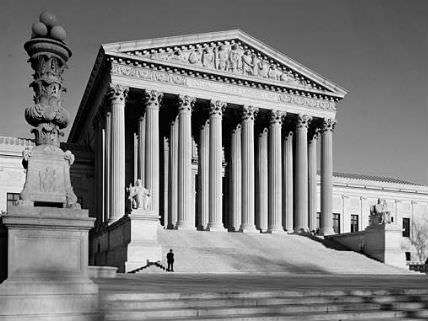Today in History: SCOTUS Protects the Corporate Speech Rights of The New York Times
Marking the 54th anniversary of New York Times Co. v. Sullivan

Do corporations have First Amendment rights? Many modern progressives think not. Former New York Times editorial board member Adam Cohen, for example, has argued that corporate speech does not deserve First Amendment protection because "the Constitution never mentions corporations or their right to speak."
Fortunately for Cohen and his old colleagues at the New York Times Company, the U.S. Supreme Court reached a different conclusion. And no, I'm not talking about Citizens United.
Fifty-four years ago today, the Supreme Court issued its landmark First Amendment ruling in New York Times Co. v. Sullivan. At issue was a libel complaint filed by Montgomery, Alabama, City Commissioner L.B. Sullivan against the New York Times Company because the Times had run a full-page advertisement that charged Montgomery police with violating the rights of civil rights activists.
The Alabama courts sided with Sullivan, awarding him $500,000 in damages for the alleged libel he suffered in his capacity as the city's supervisor of police. But the Supreme Court reversed that outcome. "The rule of law applied by the Alabama courts," the Supreme Court held, "is constitutionally deficient for failure to provide the safeguards for freedom of speech and of the press that are required by the First and Fourteenth Amendments in a libel action brought by a public official against critics of his official conduct."
According to the Court, the First Amendment "prohibits a public official from recovering damages for a defamatory falsehood relating to his official conduct unless he proves that the statement was made with 'actual malice'—that is, with knowledge that it was false or with reckless disregard of whether it was false or not." To hold otherwise, the ruling said, would be to allow a "pall of fear and timidity [to be] imposed upon those who would give voice to public criticism" of public officials, an outcome that the Court described as "an atmosphere in which the First Amendment freedoms cannot survive."
Which brings us back to former Times-man Adam Cohen. If Cohen is correct about the Constitution offering no safeguards for corporate speech, then the corporate New York Times Company should have never won this case. Thankfully for the freedom of the press, Cohen's argument remains a losing one.


Show Comments (76)